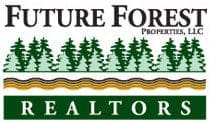Hunting has always been a well-loved pastime, but recent developments have made the sport rather tricky to pursue. As public hunting areas become more congested, more people are hunting on private land. Landowners may benefit from this, and renters have access to prime hunting grounds.
Many things should be considered before signing one of these leases. Below are eight recommendations with explanations of how they relate to both property owners and tenants.
#1: Work with Trusted Professionals
Work with respected professionals in your area. Landlords may not know how to find acceptable renters, and prospective tenants may not know where to look. Local governments provide helpful information about available houses in your desired location. That said, renters should contact NRCS district conservationists and county Extension officers.
Keep in mind that because these conservationists and brokers will frequently deal with property owners, all parties should feel comfortable with the connections they provide.
#2: Do Your Research
Do your research. Both tenants and owners should thoroughly vet each other by requesting references. Meanwhile, potential lessees can do the same thing by contacting past tenants. Additionally, if you plan to rent the property, do a walkthrough first.
Upon your research, reach out to any hunters who live nearby. You’ll learn about the hunting season, species variety, and size expectations.
#3: Determine What You Want
Determine the sort of lease you want. Hunting leases can be extended or short-term, with pros and cons for both parties. Long-term agreements might be seasonal, annual, or multi-year.
Long-term leases are more expensive upfront but less expensive each day. These contracts free up property owners from providing for short-term visitors, which can be concluded swiftly benefit both parties if there are issues with the other side.
#4: Negotiate Fees
Make sure to negotiate hunting fees. Those in charge must carefully consider what activities and automobile kinds will be allowed and at what rates. You want to maintain competitive rates at the most fantastic deals, so examine your criteria as a possible renter.
#5: Transparency Is Key
Be transparent about your availability. Lessors often use or rent out hunting fields. In addition, lessees must consider the dates and number of other parties who will have access to the property at the same time.
An unambiguous statement of the area’s availability will help to avoid later disputes. For example, how big may each group be, and who can the owner’s family visit?
#6: Agree On Shared Duties
Outline and agree on shared duties to minimize future disputes, such as poaching, habitat management, and herd management are all shared duties.
This may be considerable assistance to landowners, and for customers, it can be a chance to negotiate a higher cost that may be mutually beneficial for both sides.
#7: Finalize Rules and Policies
Refine and finalize the written rules. Contracts should specify leasing terms and conditions, renewal periods and rates, property description, shared duties, and availability. Other specified criteria, such as whether permanent structures can be built, should be observed.
No matter where you sit at the table, get everything in writing. Anyone signing a hunting lease, or getting married with significant assets, should seek a prenuptial agreement.
Conclusion
When it comes to hunting properties, there are numerous aspects to consider. And just like any property, you must look into minor details and zoom out for the bigger picture. As a landowner or a renter, the tips above are what you can do to make the best out of a hunting lease.
Are you looking to buy hunting land? Future Forest Properties, LLC offers you a team of licensed salespeople and brokers who will provide you with the best services across the New York area. Let us assist you with your purchase or land for sale, and contact us today!

